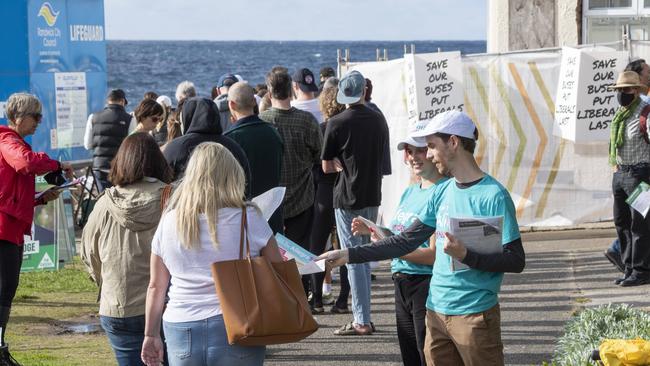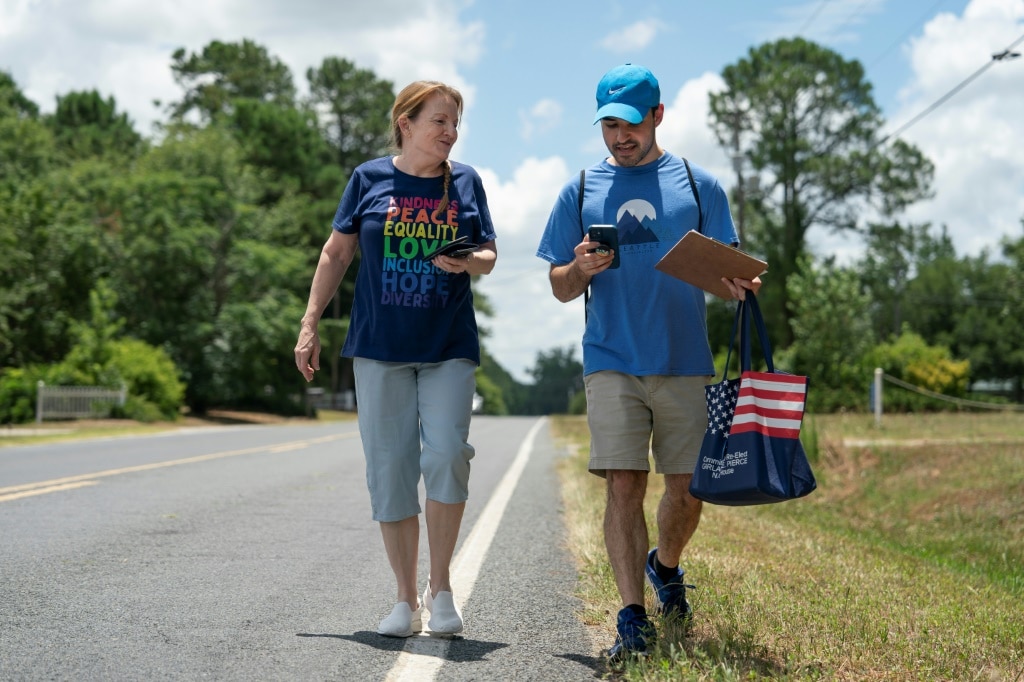Almost half of young Australians vote because they’re scared of a fine
In a new landmark survey, researchers found – surprisingly – that young Australians not registered to vote were more likely to be wealthy students than registered voters who simply forgot to show up on election day.

Almost half of young Australians are voting primarily because they fear a fine, not because they see it as a duty, a new landmark study has found, with a surprising finding that young Australians not registered to vote were more likely to be wealthy students than registered voters who simply forgot to show up on election day.
Gen Z voters are – naturally – the least registered voting age group, with about one in 10 voters aged 18-24 estimated not to have registered compared to 2 per cent in the rest of the population.
Their voting behaviours will play a significant role in the upcoming federal election, the first one where Gen Z and Millennials will outnumber Baby Boomer voters in every jurisdiction.
The new paper, published in the international ‘Political Studies’ journal, found that the main predictors of whether a Gen Z person would not vote were that they were not employed, they had a low level of political interest, and they were more disillusioned with democracy.
However, participation in political activities such as signing a petition, attending a protest, or boycotting products were not reliable indicators of whether that young person would vote or not.
That is, young activists who signed a petition, attended a protest, or boycotted products were not more likely to vote than their peers in any statistically significant way.
That broad group of non-voters can be split into two smaller groups: registered voters who abstained on the day, and people who have not registered.
In a surprising finding, the young Australians who are not registered to vote tended to be high income students.
The finding is contrary to the usual assumption that non-registered young Australians tend to be poorer and less engaged than registered voters who merely forget to vote on the day.
“Our research underlines that young people who do not vote are not necessarily more disengaged from society than those who do vote,” authors Sofia Ammassari, Ferran Martinez i Coma, and Duncan McDonnell wrote.
“While this may sound like good news, the less cheerful reality is that the reason we do not find major differences in terms of attitudes towards parties is not because of widespread enthusiasm for them, but because young voters are just as skeptical about young non-voters about the extent to which parties care about them and offer distinct platforms.”
They said their research reflected “broader international research on youth disillusionment with party politics”.
“Beneath the rosy veneer of high youth turnout created by compulsory voting in Australia lies the same disenchantment with political parties as found across the global north.”
The Griffith University survey of 1,500 Gen Z Australians – which deliberately oversampled for people who did not vote – found that of the 622 that did vote, 47.4 per cent of them said they voted primarily because they did not want to get fined.
Just 21.5 per cent thought voting would make a difference, 16.6 per cent thought it was their duty to vote, 10.9 per cent said there was a party or candidate they wanted to vote for, and 3.5 per cent said they were interested in politics.







To join the conversation, please log in. Don't have an account? Register
Join the conversation, you are commenting as Logout